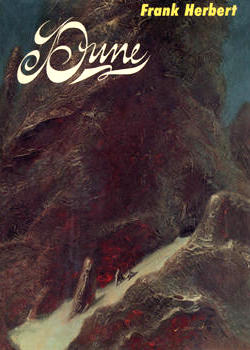I’m an avid reader. I like to post book reviews here. I also add extractions of highlights and favorite quotes in the form of JSON payloads created with a tool I wrote called AmaJSON.
Sapiens

 Rating: 5.0 / 5.0
Rating: 5.0 / 5.0
I’ve now read Sapiens by Yuval Noah Harari twice and I consider it to be a wonderful summation of what my species is, for however long we remain the dominant species on this planet. In this post I present a few take-away ideas, but also provide my notes as well as Kindle highlights in JSON format.
For me, this book is closer to a religious text for a religion of Human-ism; or, better yet, Sapiens-ism. It is a book that frames the whole of what we are as animals and the means by which we’ve fabricated culture. It was once the scope of religion to answer these, but this book covers that in a much more relatable, believable, and comprehensible way. Genetics, biology, and neuroscience here provide me a vastly greater appreciation of what Sapiens is than any mythic text.
In Sapiens, we explore a place where dogma and imagined truths are set aside so that we mortal engines can see ourselves for what we are:
resource-anxious Great Apes with an odd cognitive mutation that fuels our ability to imagine and thereby abstract.

Inspectional Read: Why Don't Students Like School
 Rating: 3.0 / 5.0
Rating: 3.0 / 5.0
Note: Based on my read of How to Read a Book, I am applying the “Inspectional Reading” technique here so as to extract the majority of relevant points without doing an “Analytical Reading” on this content. I’ll reflect on the efficacy of this method elsewhere. Nevertheless, I believe that this write-up captures many of the major points.
Conclusion Pre-Digestion
- We must make learners’ time investment valuable
- “Teaching is an act of persuasion” (conversely, many litigators including Justice Ginsburg note the inverse in the courtroom: persuasion is an act of teaching; she uses the story style of Nabokov to ensure that cognitive complexity remains small and persuadability, therefore, remains high.)
- “Education” is “passing on accumulated knowledge”
- “Thinking” is combining knowledge in new ways
- Maximize the impact of the following key 9 observations by
- Knowing the reader
- Maximizing how your content affects them
Key Nine Observations
- People are naturally curious but they are not naturally good thinkers. cf. Kahneman “Thinking Fast and Slow”: we actually prefer heuristics and scans versus careful thinking.
- Factual knowledge precedes skill. You need to memorize certain things to start building your platform. It’s like sinking the posts for a pier. The more posts you have the bigger the pier you can build out.
- Memory is the residue of thought. If you want them to remember, make them think through digging a trench. The dirty left on their clothes will be their memory of the exertion and process.
- New understanding is in light of old. Validates the Constructivist model
- Proficiency requires practice No escaping it: even experts practice e.g. musicians
- Cognition differs between early learners and later learners. For early learners, you don’t get to cut to abstraction early because you (an expert) have expert models in mind because experts’ minds are fundamentally different. Likewise, you cant cut to axiomatic build up from atomic observations for beginners because, again, their minds are fundamentally different.
- Learners are more alike than different. That learning style stuff is bunk.
- Intelligence can be improved
- Teaching is a skill, therefore it must be practiced as well
First six points are relevant to me. Dig deeper:
How to Read a Book
 Rating: 4.5 / 5.0
Rating: 4.5 / 5.0
I found this book a few years ago on the sidewalks of Park Slope and I regret I haven’t read it sooner!
Adler and van Doren provide a wonderful set of techniques for getting a better grip on your “To Read” pile and help you feel more comfortable in choosing what level of attention is appropriate for the material. By making this calculation in an informed and methodical way, you can process your pile more effectively. I really needed this help because I’m such a completionist, I’m always afraid I’m going to lose a critical fact if I’m not diligent to the end degree. I hope these techniques will help me move more quickly and exercise better judgment.
Having provided those techniques, the authors provide a very considerate introduction on how to read books in genres that you might not be comfortable in: science, social science, or philosophy.
Over and above those practical points, the book serves as a good set of advice on how to do anything actively: active listening, active reading, active programming, active conversation, etc. The skills of acting actively, we’d say “mindfully” today, were seen as related to reading and writing when this book came out in 1940, but the truths that underlie that view have not changed. I found many places where “read/write a book” could have been swapped with “read/write code” or “converse” or “learn to play guitar” or “meditate” or “make tender love to” and the value been as impactful.
This book in the right hands at the right time could make for a huge change in educational quality and life quality of the reader.
This is all the “reviewing” I’ll do here. Below I’ll cover the techniques and distillations I made of the text. I’m posting them here for quick reference :).
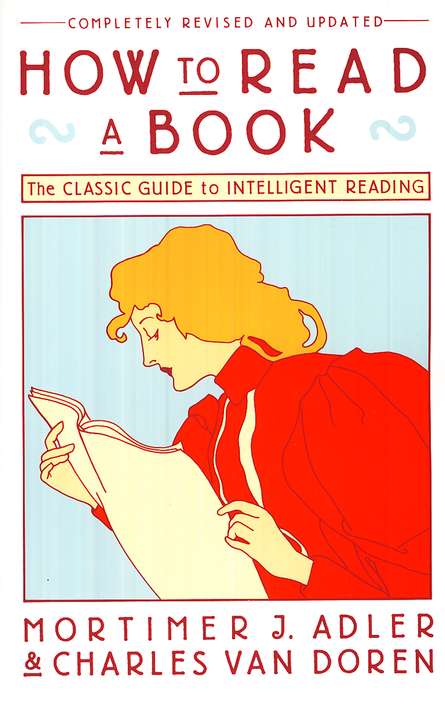
Song of Achilles

 Rating: 4.5 / 5.0
Rating: 4.5 / 5.0
One of the few books that I’ve ever read twice, and one that I read twice in short order, Madeline Miller’s Song of Achilles hits me in the sweet spot intersection of my love of classics, adventure, and beautifully-imagined writing. Said the by-no-means-modestly-gifted writer Donna Tartt: “[she] carries the true savagery and chill of antiquity.” Tartt’s is a wonderful summation and compliment to Ms. Miller. This is a beautiful book that captures the voice, and the mind of the ancients so perfectly that I felt like I was back in one of my Latin classes, chipping away at granite-hard sentences to discover the wit, barbarity, and glory of those days gone by.
The book centers on Patroclus, the friend (and lover) of Achilles, greatest of all Greeks. Patroclus sets up for us the life and fears of kingdoms within the Hellenic region. While we moderns see ancient Hellas as the cradle of our civilization, but a few centuries earlier it was a loose association of island warlords spoiling for an excuse to declare war on their neighbors. Patroclus, neither strong nor beautiful, but keenly observant helps us slide into the world of pre-Iliad Hellas. The exposition established Patroclus becomes disinherited and travels to the court of Achilles’ father.

If I Understood You, Would I Have This Look on My Face?: My Adventures in the Art and Science of Relating and Communicating

 Rating: 3.0 / 5.0
Rating: 3.0 / 5.0
A few months ago I was at my barber’s and while Alex was giving me a trim I managed to catch Alan Alda on some morning show talking about his latest book.
Now to me, Alda will always be Hawkeye. It seems like all the times I turned on the TV in my youth after 9 pm, he was on in an episode of “MASH.” Likable, affable, and sensitive, beneath his ironic detachment, his bleeding heart was bare on the show. Later, I enjoyed watching him on “Scientific American Discovery” as he, it seemed to me, always managed to get the scientists to have fun and to show their passion for their study.
This was, of course, long before I thought I would ever document my love of a science (programming) and share it with the world.
In any case, Alda, in this morning spot, talked about his communication issues and the humility he has had to have with communicating with his wife over their 60 years of marriage! That someone who could offer so much sympathy and pathos in his performances couldn’t communicate emotions effectively was nothing short of gob-smacking. Furthermore, Alda points out that our inability to communicate science well has lead to the baffling counter-science movements of anti-vaccination and flat-Eartherism (for reals?). Based on that, I decided to take a look at this book in hopes that it might help me become a better partner, manager, and friend.
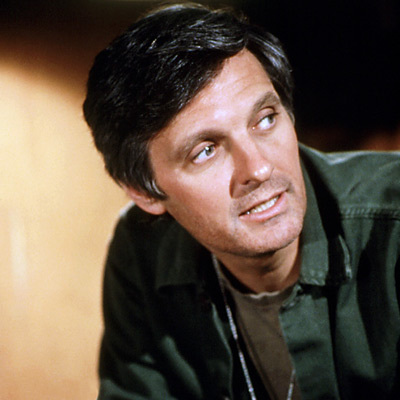
Here Is New York

 Rating: 5 / 5.0
Rating: 5 / 5.0
As mentioned previously, the NYC Link kiosks have been posting NYC quotes and provided a pointer to E.B. White’s travel guide to NYC. At the time of the writing, White had left New York for Maine where he had set up a bucolic existence. He returned to the city during a heat wave and, in a vein similar to Steinbeck, had occasion to reflect on what had happened to the town where he’d cut his teeth.
What’s left is a reflection on the bliss and indignities of New York life. It is always, and ever was, the agony and the ecstasy, all the time. Every line is a gem. White’s gift for laconic, efficient text is on full display here. I highly recommend reading through the notes for some solid laugh-out-loud takes on the magic, majesty, mystery, and sweaty crowdedness of NYC.
And, should you be on a flight into Our Fair Town any time soon, load this bit of reading up for the flight. It will fill you with the excitement and expectation that only Gotham knows how to provide.
While I always include my notes as JSON, I’ve extracted these lines out for easier enjoyment after the jump.

Travels With Charley

 Rating: 3.5 / 5.0
Audio Rating: 4.0 / 5.0
Rating: 3.5 / 5.0
Audio Rating: 4.0 / 5.0
When we were looking to figure out what breed of dog to buy, poodles were a possibility, and I saw several references to Charley, the traveling dog from the John Steinbeck book. While I’d been compelled to read Cannery Row and Of Mice and Men by the educational system of Texas many years before, I had never heard of this book. Years on from reading the title, and years on into poodle ownership, I thought I’d take a listen.
Audiobook
I picked it up because it was available at the NYPL and the audiobook version was read by Gary Sinise. Sinise brings a loveable curmudgeon’s voice to the Steinbeck of the story and voices the variety of characters along the way wonderfully. Sinise captures the voice of the New York cop, the upstate traveller, and the Central Valley Mexican-Californian. More sinister, he captures the voice of the virulent Southern racist (surely a caricature in the telling) as well as the saintly aged Southerner who sees a different future for his region. For Sinise’s telling of it, the story is immeasurably enriched.
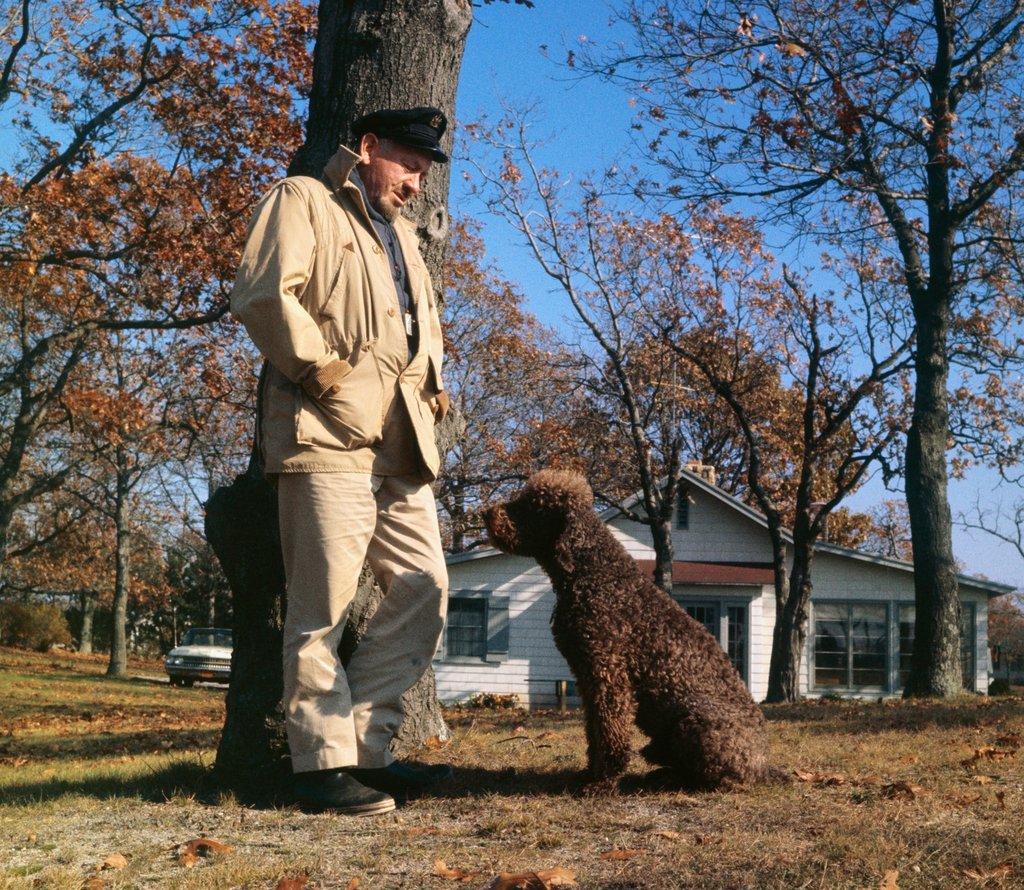
My Year of Rest and Relaxation
 Rating: 2.0 / 5.0
Audio Rating: 4.0 / 5.0
Rating: 2.0 / 5.0
Audio Rating: 4.0 / 5.0
I listened to Ottessa Moshfegh’s “My Year of Rest and Relaxation” (MYRR, hereafter) this late Summer. My reaction was distaste for the story and dislike of the unnamed protagonist / narrator. As I finished the book, my overwhelming sense was that Moshfegh had written a book to test sexism: “Can one write a character as unlikable as Mersault from Albert Camus’ The Stranger, and get away with it?"1
MYRR closely follows The Stranger. In both works, the reader is given little to explain protagonists’ lack of attachment with the world. Why does Mersault feel nothing when his mother dies? Why does the narrator feel comfortable entering a narcotic-induced coma? They are both horrible to those that care for them: Mersault to Marie, Moshfegh’s narrator to tag-along, Reva. And in the closing pages of their respective denouements, they both have a jarring event rip across their respective skylines that seems to jar them to a conscious more familiar to our own.
In the aftermath of their respective tales, we are asked: does their flat affect and lack of affection for the world outside, our world, render them inhuman? Or are their reactions to our world entirely reasonable? It was this question that I wasn’t certain how to answer over these last few months. And I wasn’t sure how to write about this book without having my take on the question settled.
But now I believe I’ve reached a conclusion. In her character’s choices, Moshfegh provides an exploration the proposition of the “The Hero of Non-Action” as presented by David Foster Wallace’s character Hal in Infinite Jest:
We await, I predict, the hero of non-action, the catatonic hero, the one beyond calm, divorced from all stimulus, carried here and there across sets by burly extras
Thus, Moshfegh’s narrator’s disaffection, her desire to sleep a year away through irresponsibly-dispensed drugs, and behavior designed to loosen all social ties is her “Hero of Non-Action” response to a world of artifice and insincerity, “our world.” The Mersault-like behavior of the narrator is therefore secondary to the book’s examination of the question: “How are we to survive these times?” For the narrator, and many of the characters of Infinite Jest, the answer is: “in a narcotic haze to preserve our souls which cannot handle this type of world’s demands.” Seen through this lens, the book became far more sympathetic and compelling.
While this book will never be something I love of glow about, it does have a perspective, and a unique one at that, which suggests value in reading the book.
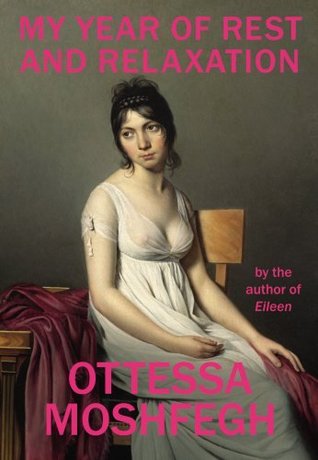
American Prometheus
 Rating: 5.0 / 5.0
Audio Rating: 3.0 / 5.0
Rating: 5.0 / 5.0
Audio Rating: 3.0 / 5.0
Researched in exhaustive depth, Bird and Sherwin trace the life, motivations and mystery of one of the true sphinxes of American life (rivalled perhaps only by Thomas Jefferson), J. Robert Oppenheimer.
To capture the scope and breadth and Protean nature of this man would daunt all but the most sedulous and dedicated researchers. But in this carefully-researched biography, Bird and Sherwin tame the untameable mess of anecdote, hearsay, and testimony to give us a picture of this most perplexing, and most thoroughly American, man.
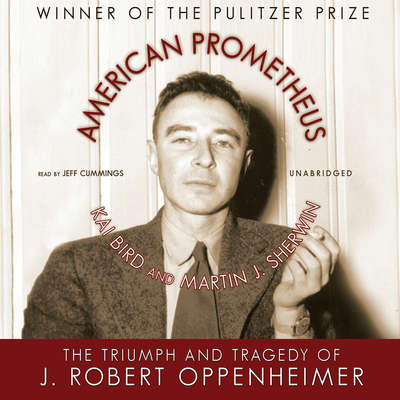
Zone One

 Rating: 3.0 / 5.0
Rating: 3.0 / 5.0
It’s now a trope that’s become near-universal as we’ve seen as geek culture move into the mainstream: “zombie stories aren’t about the supernatural; zombie stories are about humanity and how it works (or fails to work) when being confronted by the unbeatable, supernatural, and unstoppable.” I’ve stayed largely away from much of the nű-zombie media e.g. The Walking Dead, but when my friend Mike recommended this book I decided to take it for a spin. Based on the strength of this offering I was further inclined to read Whitehead’s other work, the widely acclaimed “The Underground Railroad.”
In the story, “Mark Spitz” is part of a team of “cleaners.” Amidst a resurgent humanity, cleaners are combing Manhattan block-by-block to make the island safe for the living again. To return it would be a symbol that the living had “made it.” As he walks around, Spitz reflects upon his survival after the Event, his loneliness, and his part in the decimated society that persists. There are scenes of biting undead and their disposal, as the genre demands, but the greatest part of the book is spent in Spitz’s headspace.
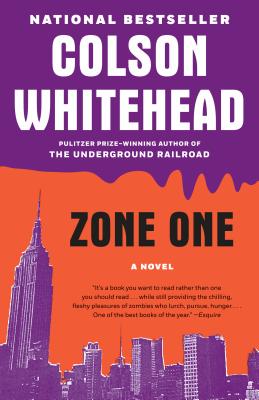
Turn the Ship Around

 Rating: 4.5 / 5.0
Rating: 4.5 / 5.0
This was a really spectacular read. It’s very popular around Flatiron School and I can see why it’s so useful. There are many management books but this one provides specific steps that help create a culture of leadership at every tier of your organization.
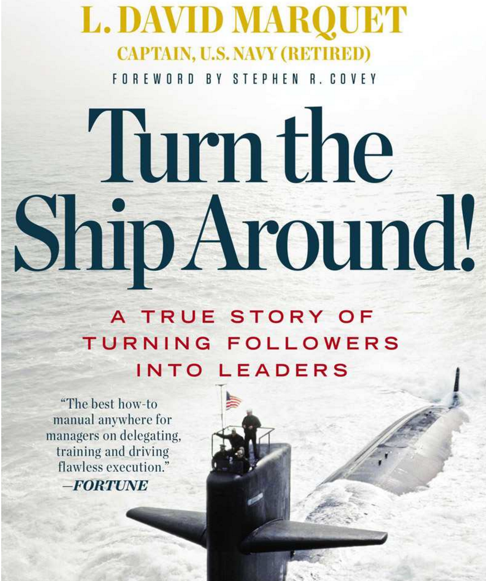
Prescience in Dune
 Rating: N/A / 5.0
Rating: N/A / 5.0
I wrote this document circa October, 2005. I have resurrected it from where it was an independent file and am now re-integrating it into this site.
Introduction
This document is the result of a discussion of distasteful contrivances within literature that tend to make a story “hokey” or that are hallmarks of a lack of creativity. In particular, my correspondent, Rohan Wynar Ph. D., and I noted that the elements of prophecy, ability to see the future, and tehcnological savior were particularly odious.
